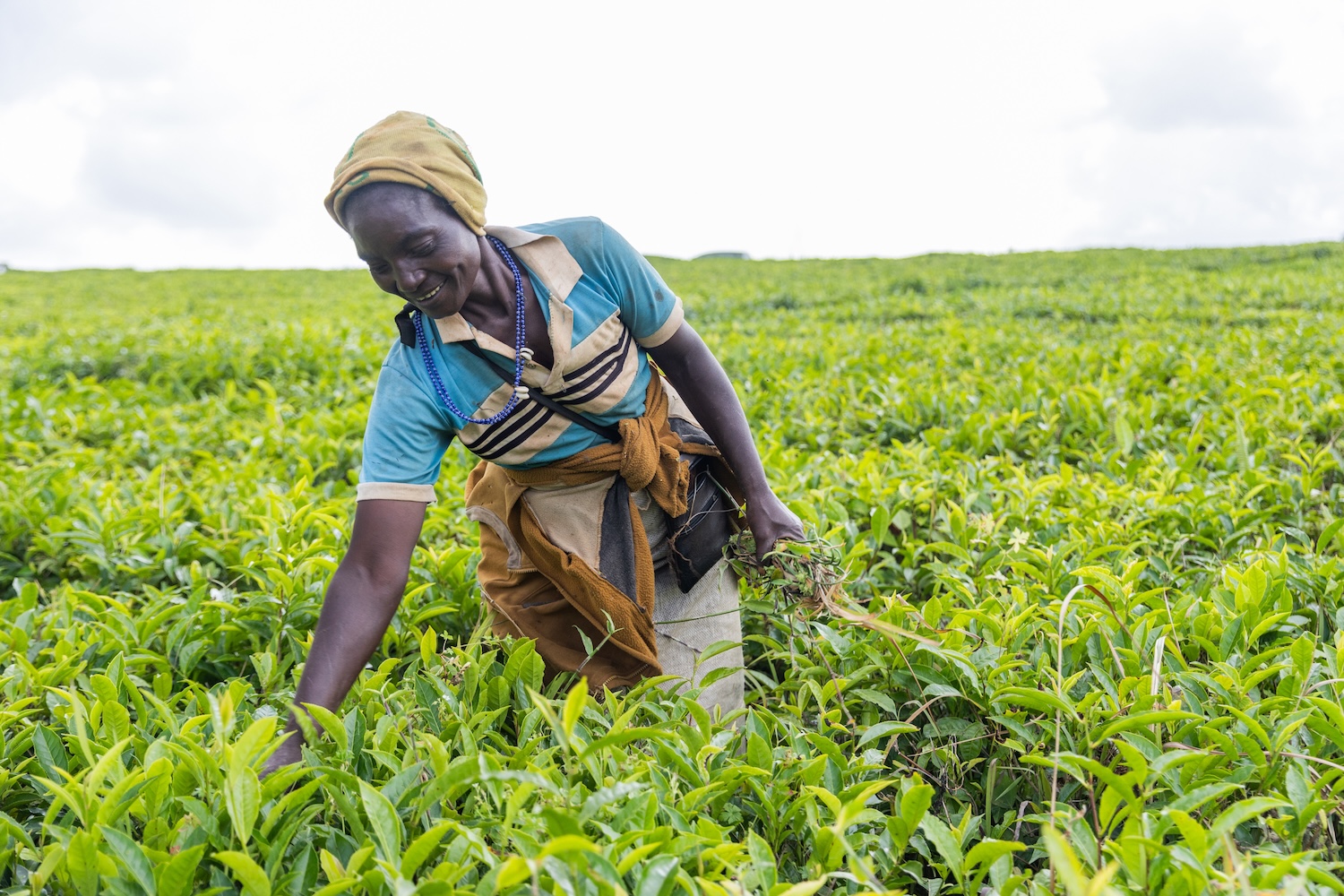
Across Sub-Saharan Africa, more than 250 million rain-fed smallholders1 face an increasingly familiar cycle: rain falls irregularly, crops fail, loans default and next season’s inputs become unaffordable. Nearly all cultivate plots of a hectare or less2, yet fewer than 3 percent have any form of crop insurance3. Climate volatility is nudging that vulnerability toward crisis: modelling suggests African crop yields could decline by 18 percent by 2050, exposing up to 200 million additional people to extreme hunger4 if farmers remain unprotected.
Oko Finance replaces this downward spiral with a safety net purpose-built for remote fields and feature phones. The company bundles affordable, satellite-indexed drought and flood cover into the very transactions that already power African agriculture: input credit, out-grower contracts and produce off-take agreements.
Catalyst Fund chose to back Oko because the venture delivers measurable impact today, deploys genuinely differentiated technology, and is steered by a team whose decade-long focus on micro-insurance makes them uniquely qualified to scale protection to millions.
Insurance is only meaningful if it reaches those who need it first. Oko has already protected more than 33,0005 farmers across five countries and eleven crops, and the vast majority (97 percent) were purchasing cover for the first time6. This level of inclusion substantially exceeds national baselines.
The consequences on the ground are tangible. A 2023 survey by 60 Decibels6 (commissioned through the FMO Reducing Inequalities Initiative) found that 68 percent of insured farmers reported greater peace of mind and 74 percent felt confident experimenting with higher-yield seeds or new practices. Notably, 70 percent obtained credit on easier terms once the policy was in place, proving that risk transfer unlocks not only recovery but also investment.
Oko also moves the needle on gender equity. A 2022 partnership with UN Women in Mali7 doubled female participation in crop insurance programs - from 18 percent to 37 percent of policy-holders7, while half of local agent roles are now filled by women. These advances map directly to SDGs 2, 5 and 13, demonstrating that climate adaptation and inclusion can progress in tandem when insurance is designed for last-mile realities.
Traditional multi-risk crop insurance collapses under the weight of field assessments and cash handling. Oko sidesteps those frictions with a fully digital stack. At the core sits a dynamic season-segmentation algorithm: coverage for a given crop only “activates” once minimum rainfall thresholds are observed (for example, 10mm over 10 consecutive days8). This sequencing reduces “basis risk” and ensures payouts mirror actual on-farm realities.
Once satellite data validates a loss, claims are processed automatically and paid straight into mobile money accounts (M-Pesa, Wave, MTN wallets)-often within days, not months.
Equally novel is the company’s embedded B2B2C distribution model. Rather than persuading individual farmers to buy stand-alone policies, Oko integrates cover into products already distributed at scale, such as input loans or supply contracts with agro-industrial buyers9. This de-risks corporate supply chains while farmers receive mandatory protection, dramatically lowering acquisition costs and improving renewal rates.
Unlike most players in the space, Oko combines licensed brokerage status, actuarial product-design capability, last-mile Android tools for field agents, and white-label APIs for distribution partners in a single platform. This systems integration represents a defensible moat in a sector where fragmentation has historically limited scale.
The addressable opportunity is enormous: globally, more than 400 million rain-fed farmers10 pay little or nothing for formal risk coverage today. This translates into a multi-billion-dollar premium pool, with Africa representing one of the most underserved regions.
Despite recent headwinds, such as the temporary freeze of USAID programming that affected 2024 revenues, Oko has continued to expand its paying-partner base11, opened a pipeline with multinational agro-processors, and diversified its geographic footprint. The model’s embedded distribution keeps acquisition costs low while giving corporates a direct incentive to bundle cover: it protects the working capital they advance to growers and stabilises supply chains.
The platform is now live for eleven crops12, with maize, cotton and sorghum representing the largest volumes to date. Every valid claim to date has been processed without delay, reinforcing trust at the farmer level.
This execution record reflects a founding team whose collective decade-plus in micro-insurance, agritech and actuarial science is difficult to replicate, a strategic edge as Oko expands into new cash-crop regions and scales toward continental leadership.
Catalyst Fund invests where climate adaptation, financial inclusion and technology intersect, and where leadership credibility matches market ambition. Oko Finance exemplifies that thesis. Its satellite-enabled underwriting, embedded distribution and disciplined path to profitability position the venture to make index insurance as commonplace as mobile money across Africa’s agricultural heartlands.
As the company scales from tens of thousands to hundreds of thousands of policies, every new farmer protected becomes one fewer household derailed by a failed rainy season-and one more building a resilient, investable future. That is why we invested in Oko Finance, and why we are excited to stand alongside the team as they secure the continent’s food systems for the climate era.
Read more from our team at Catalyst Fund

